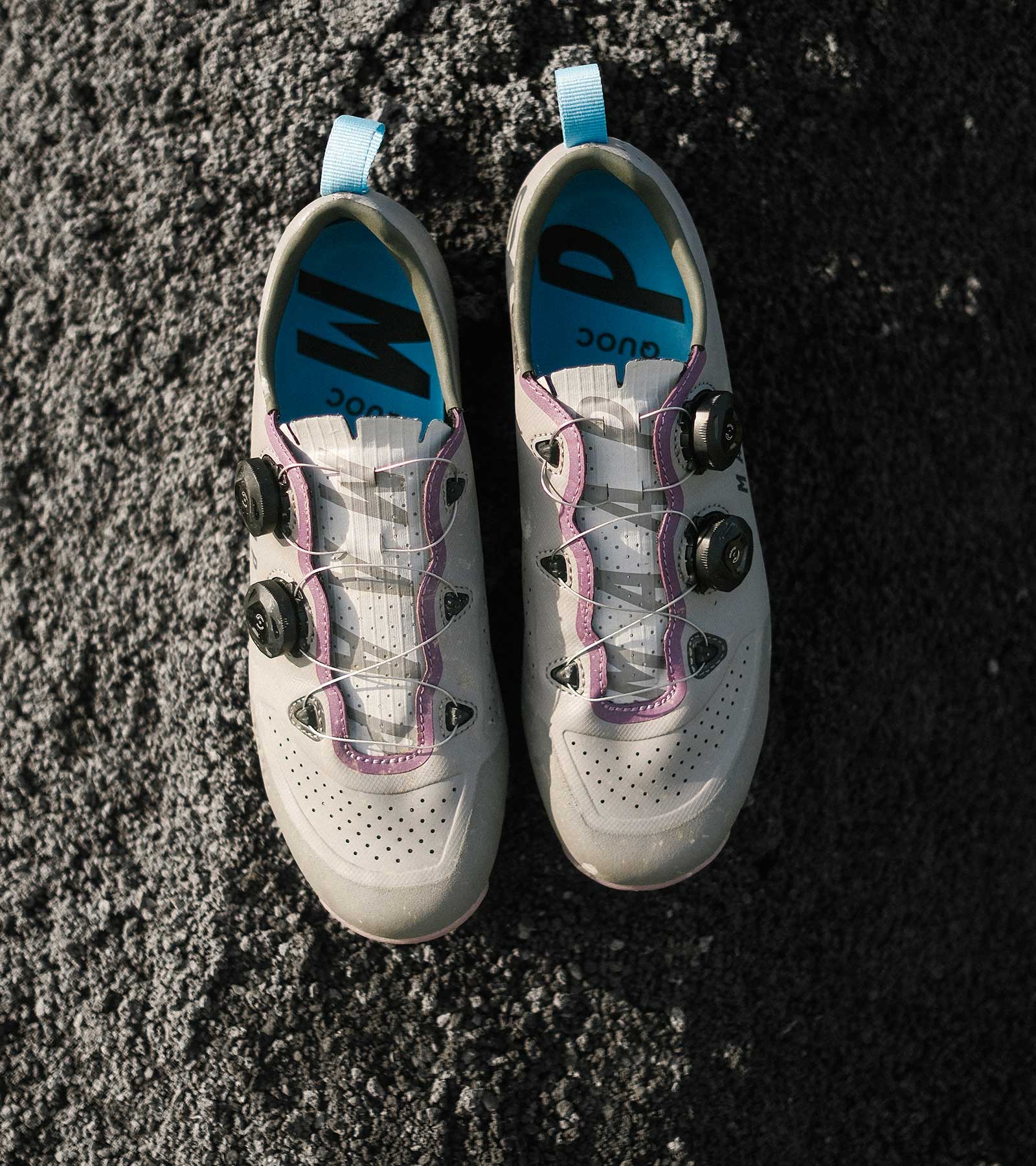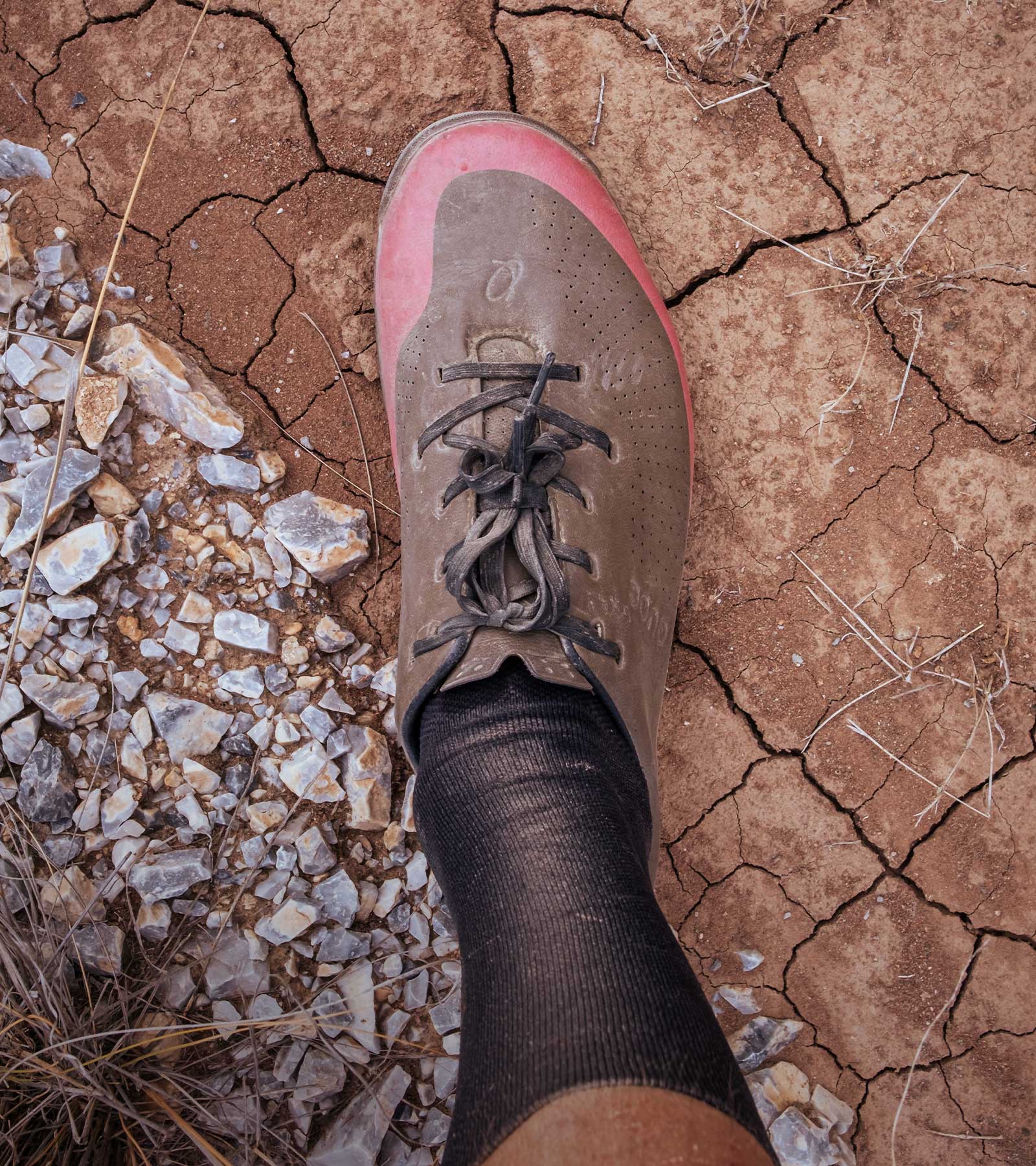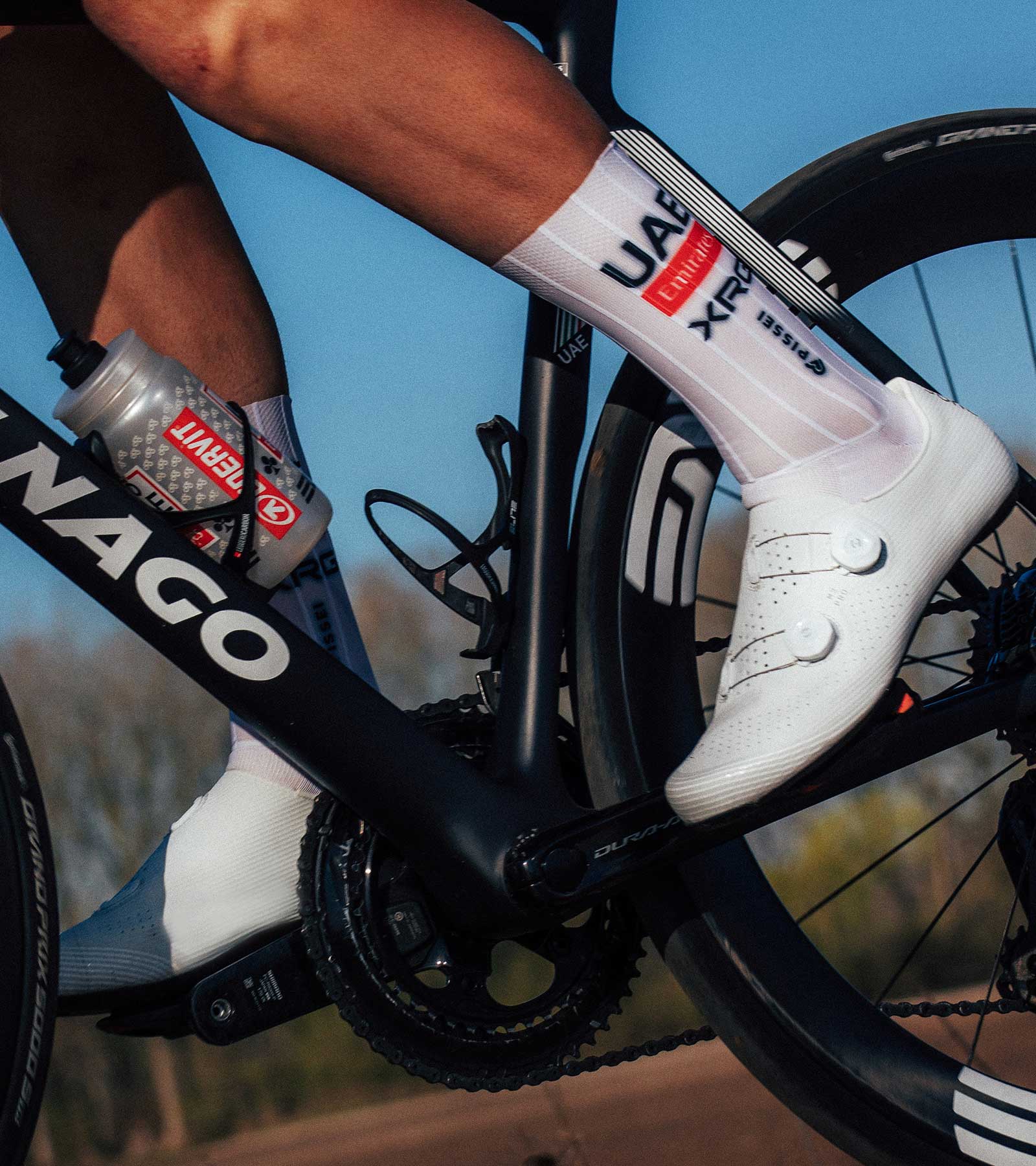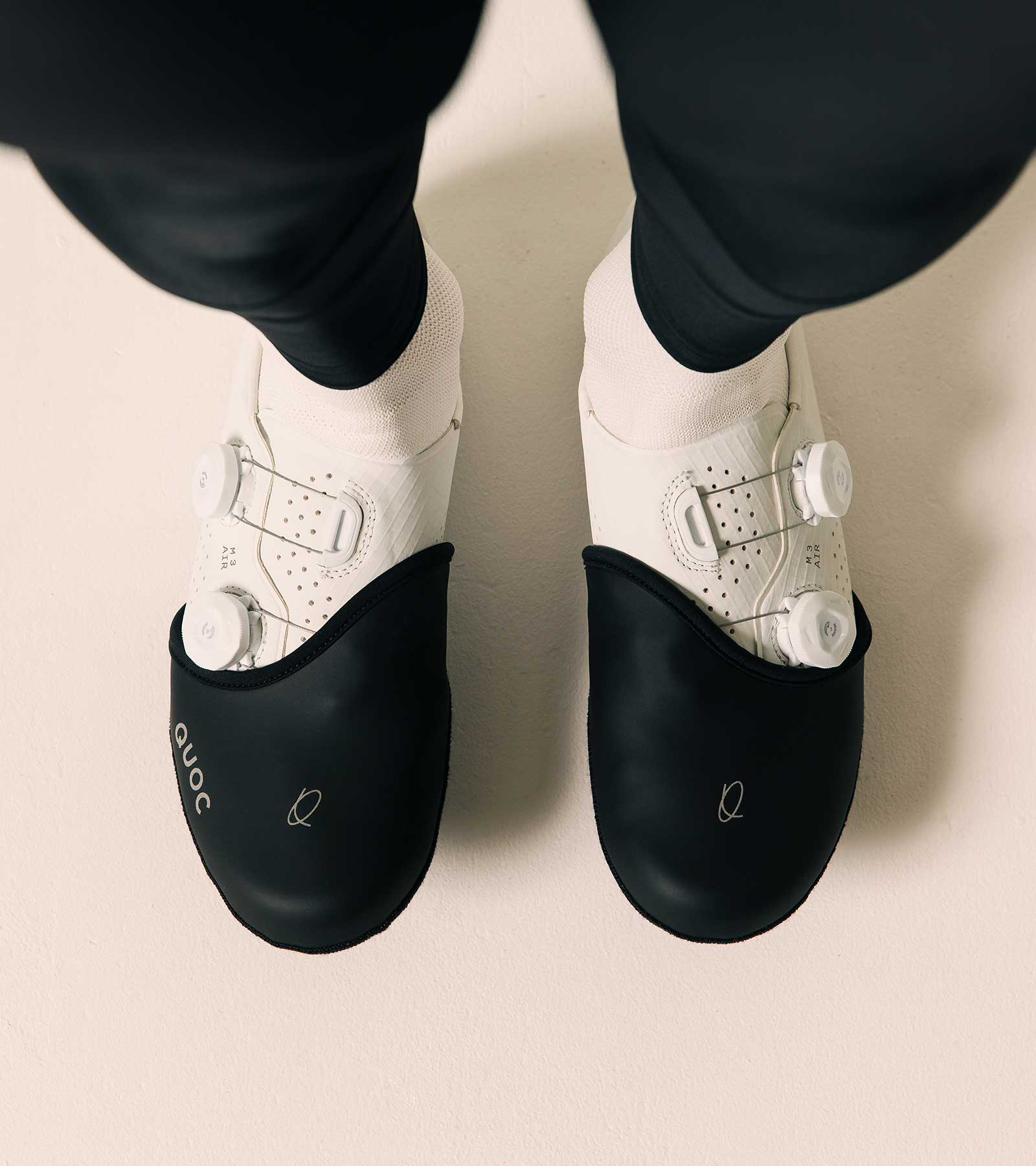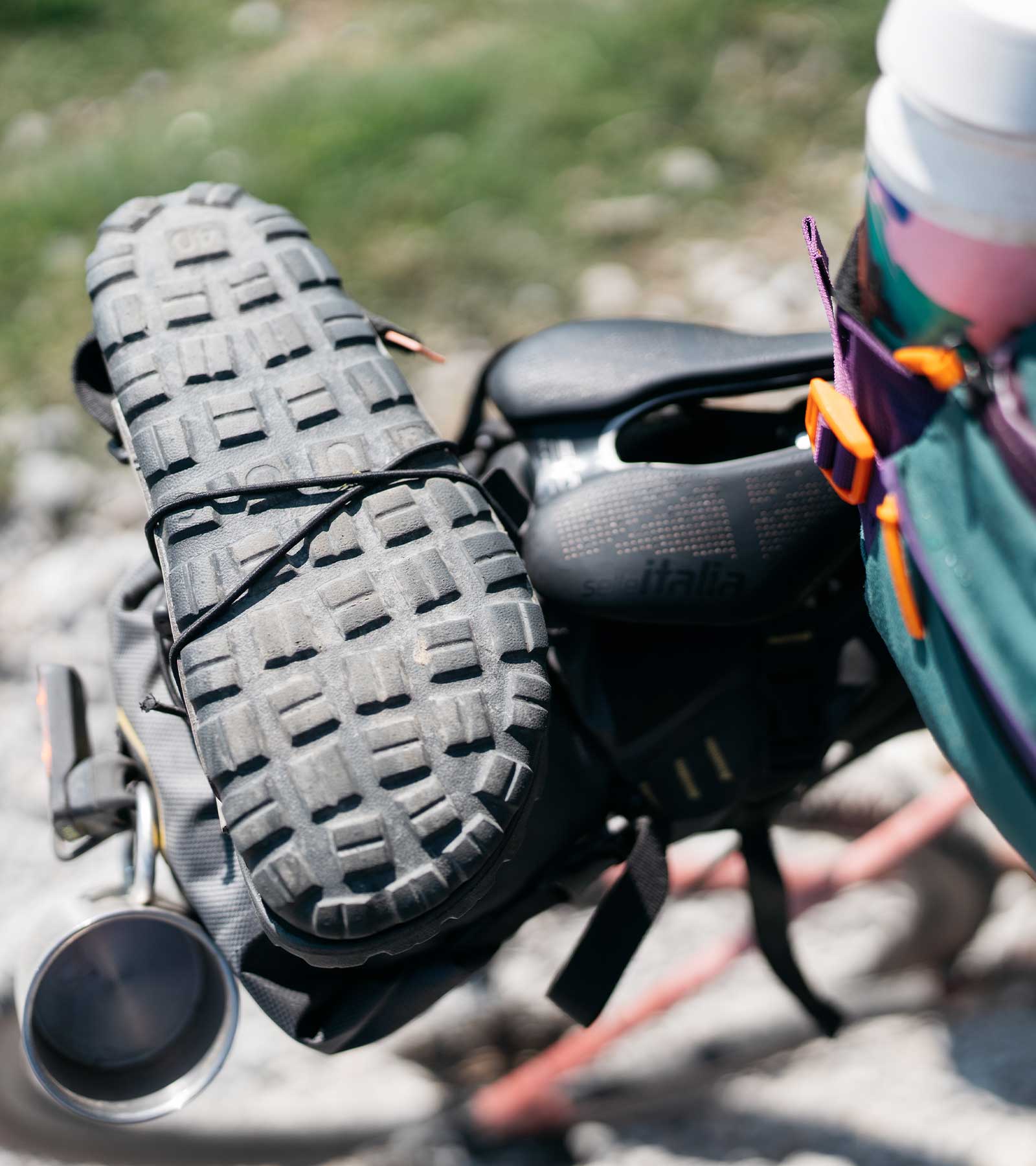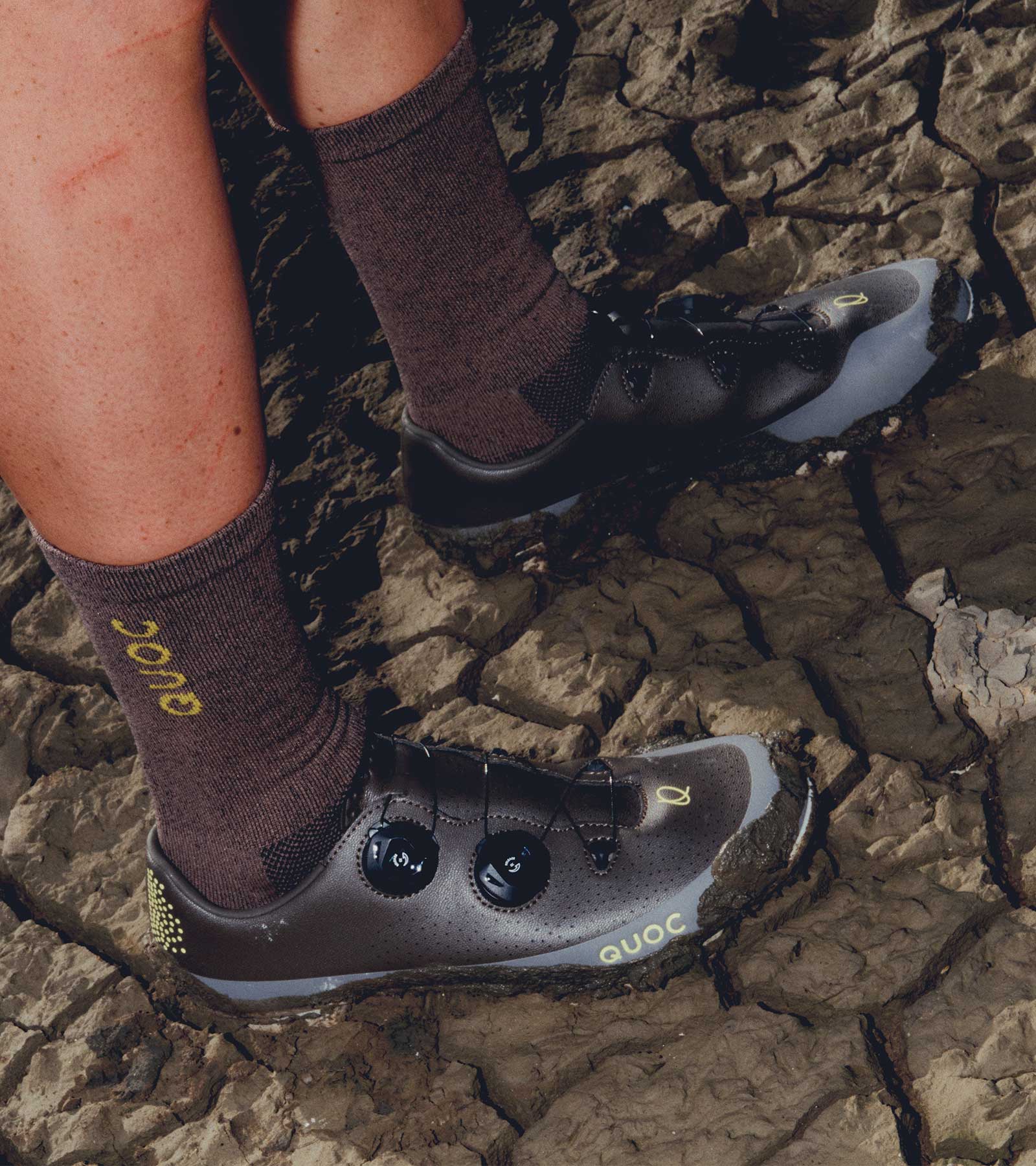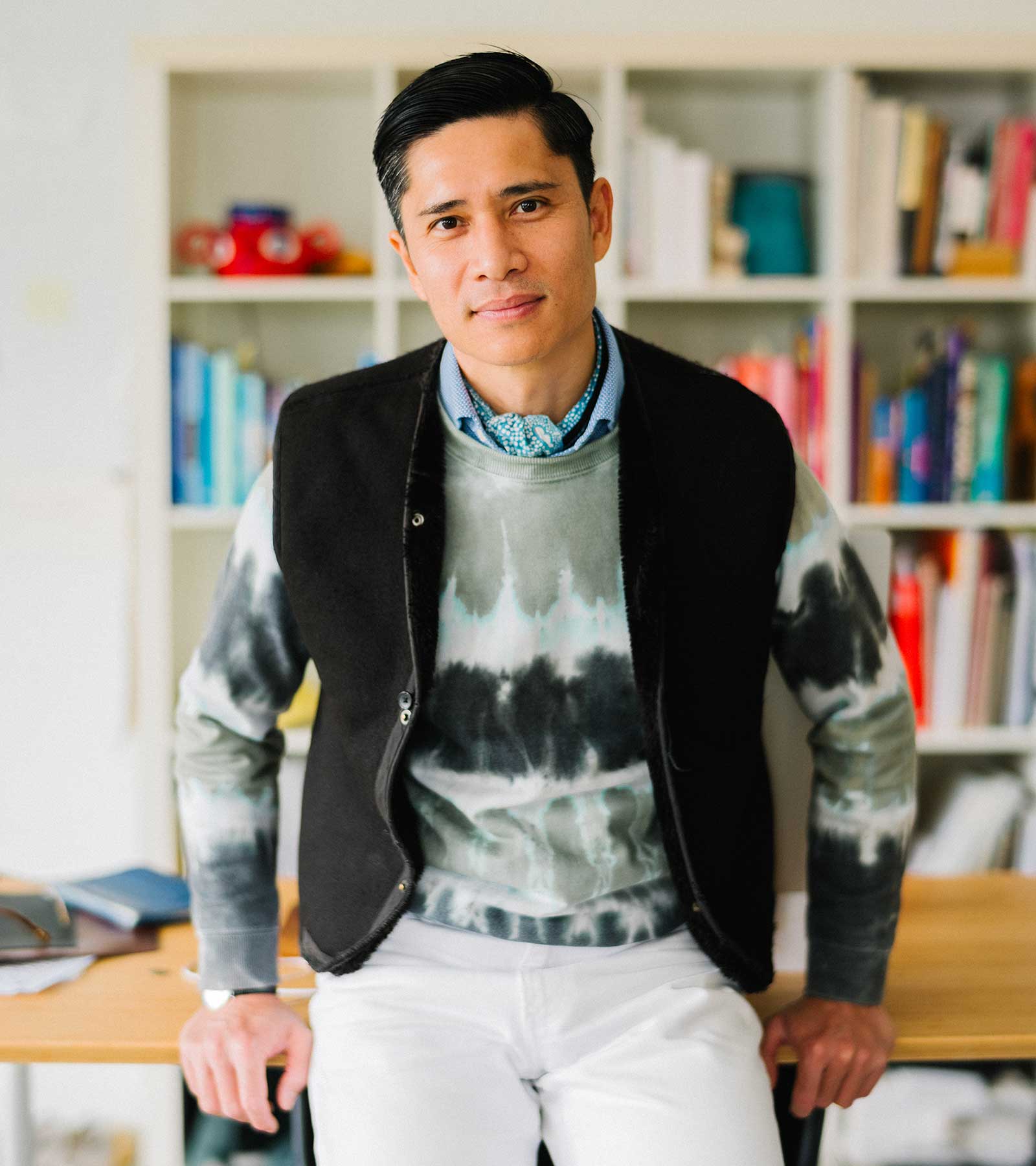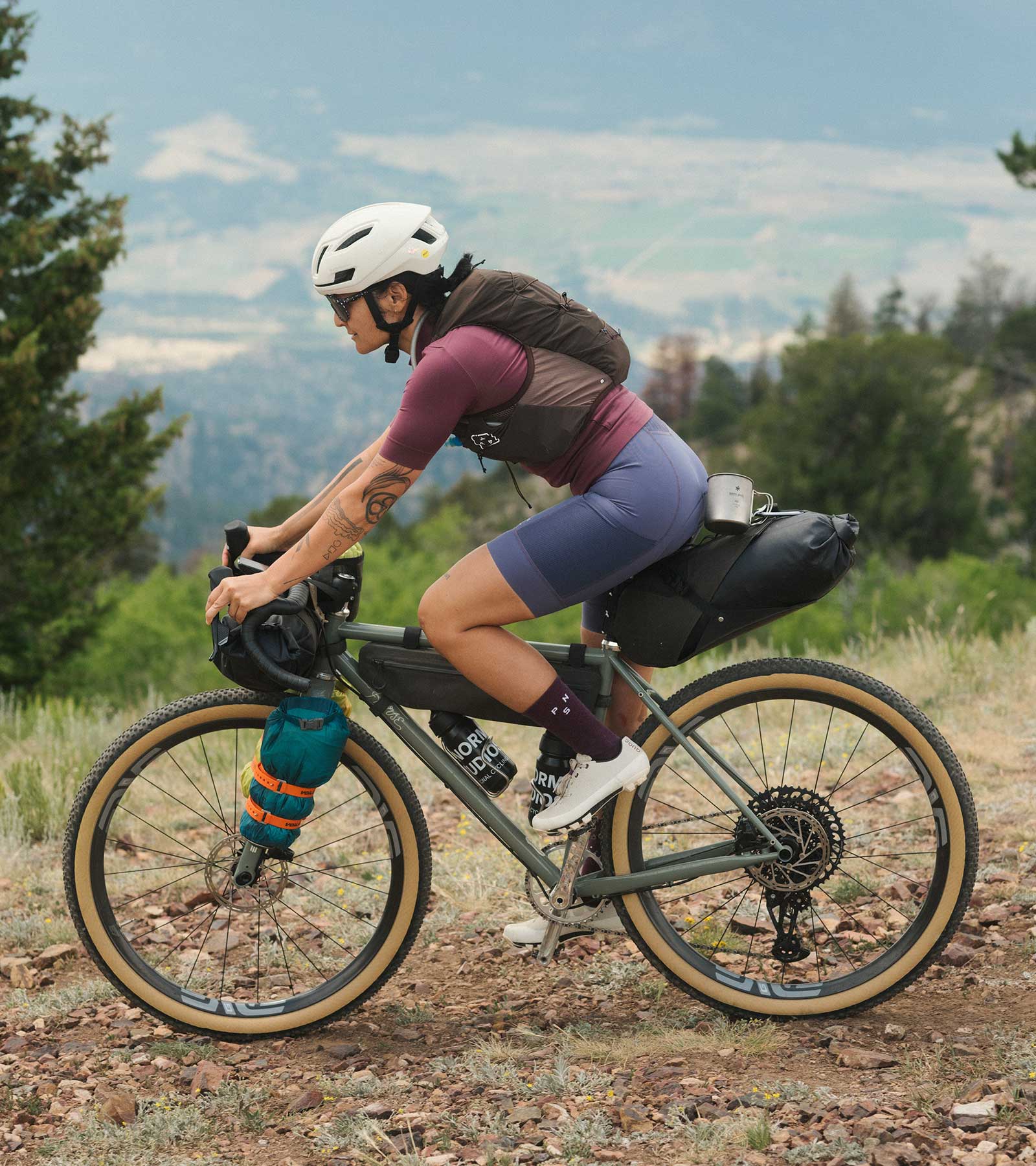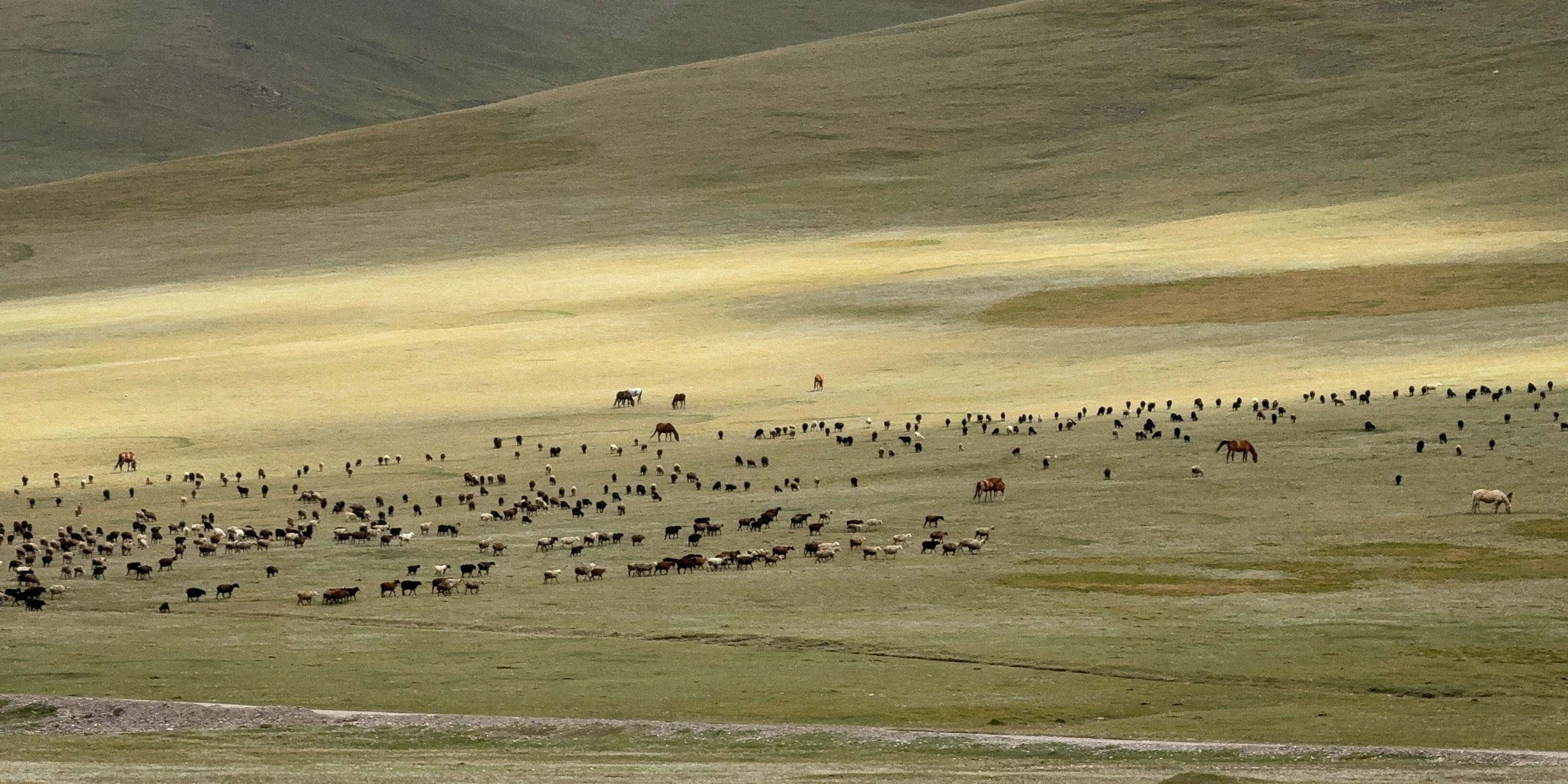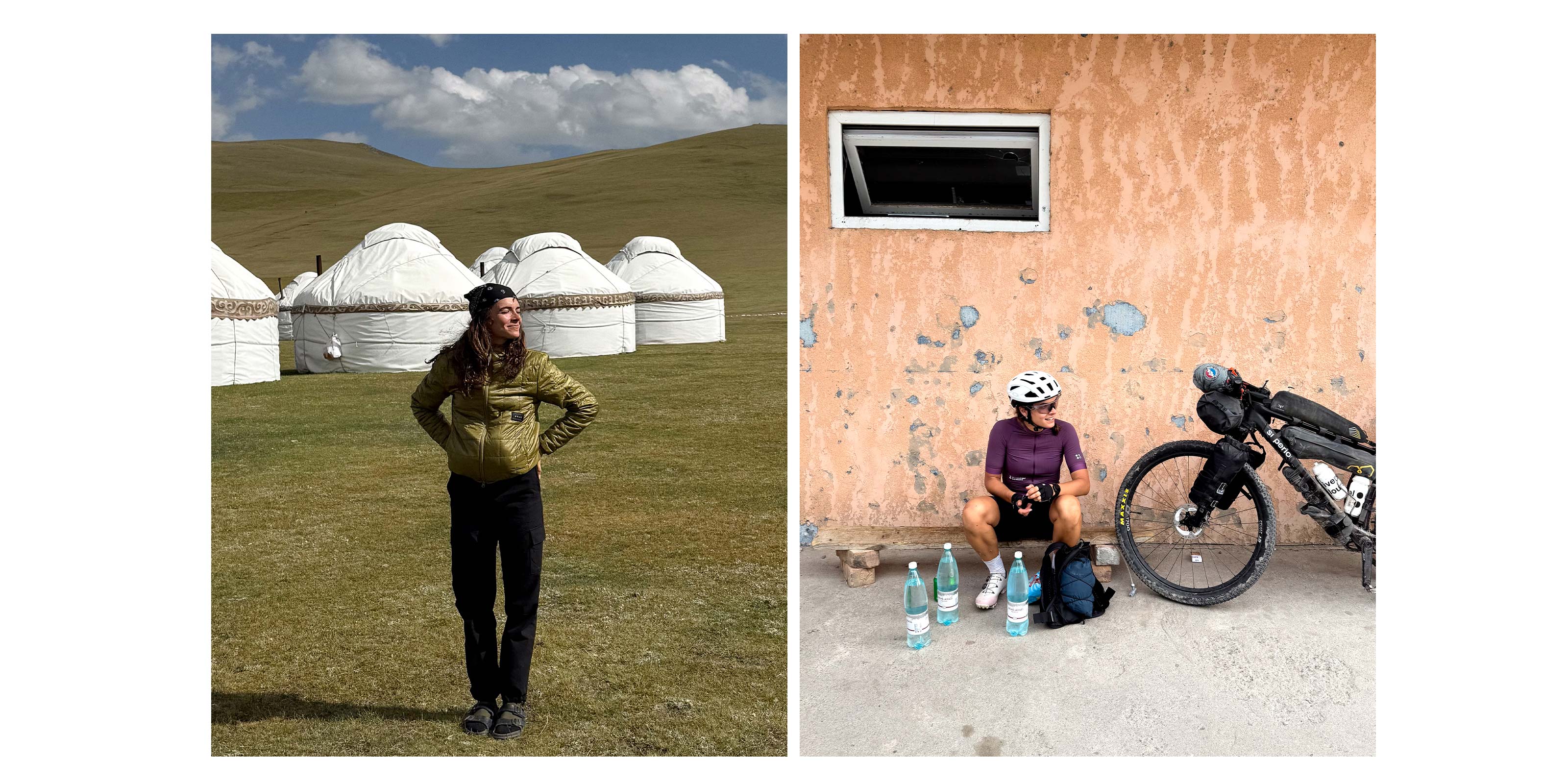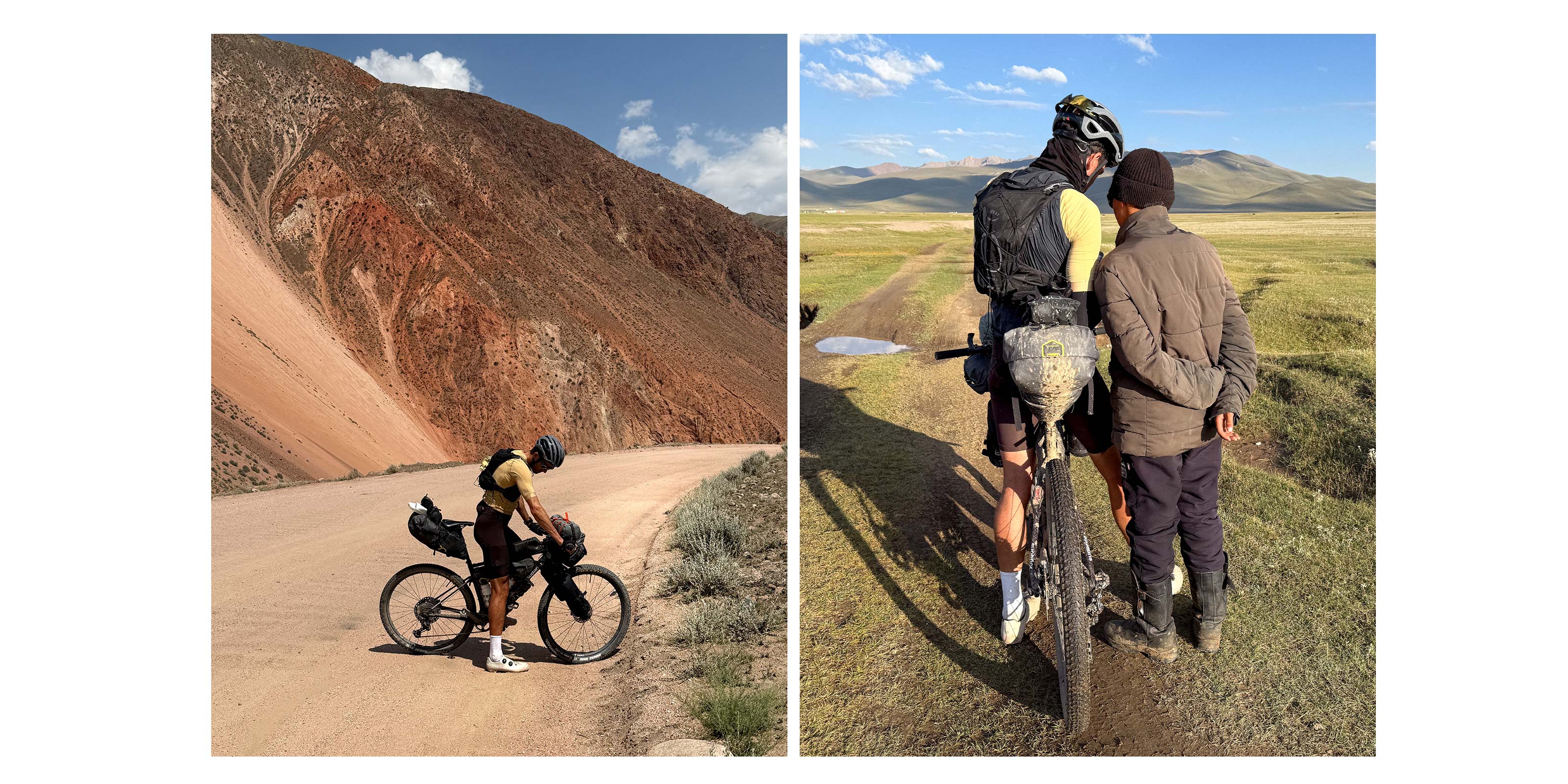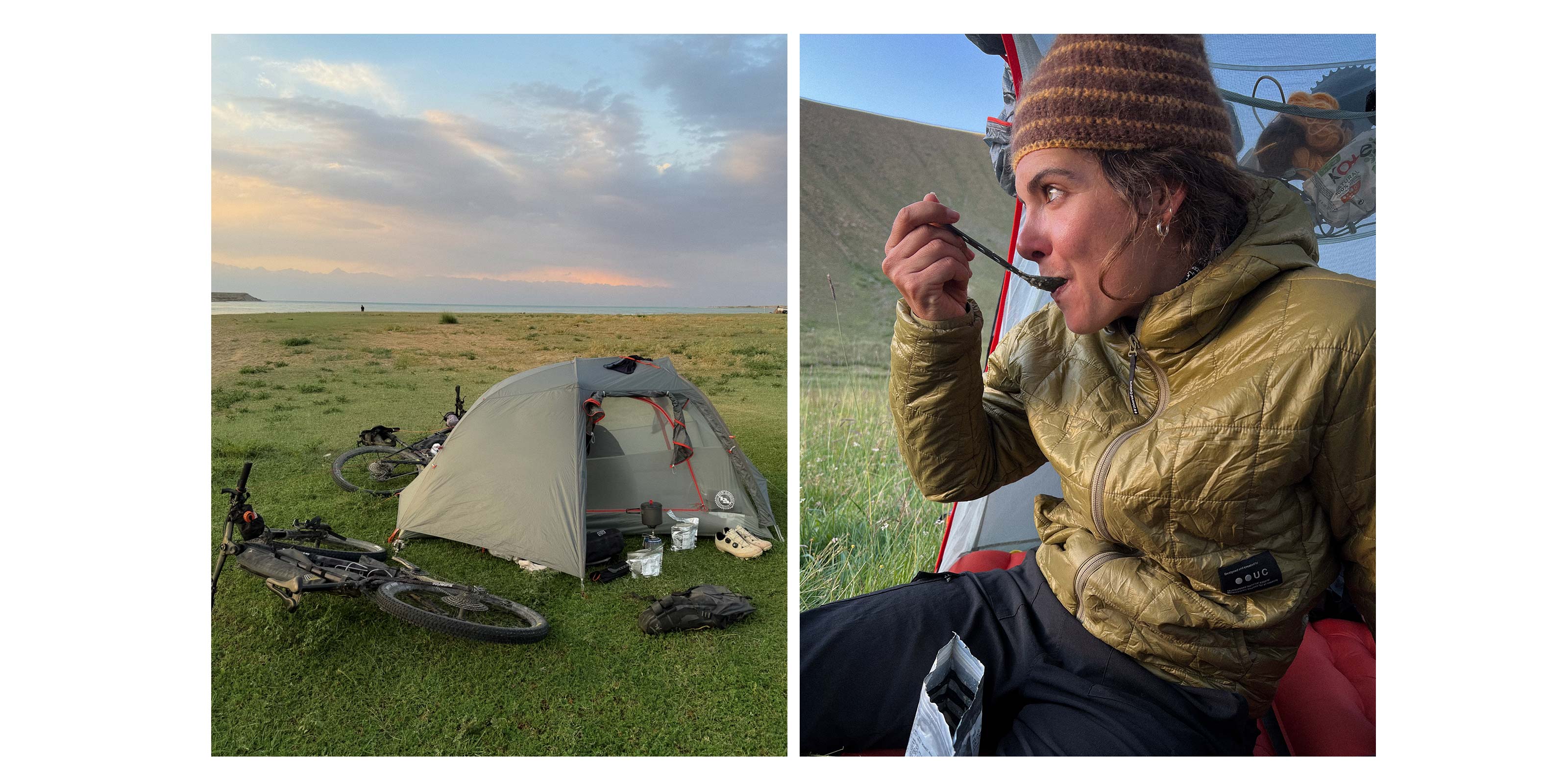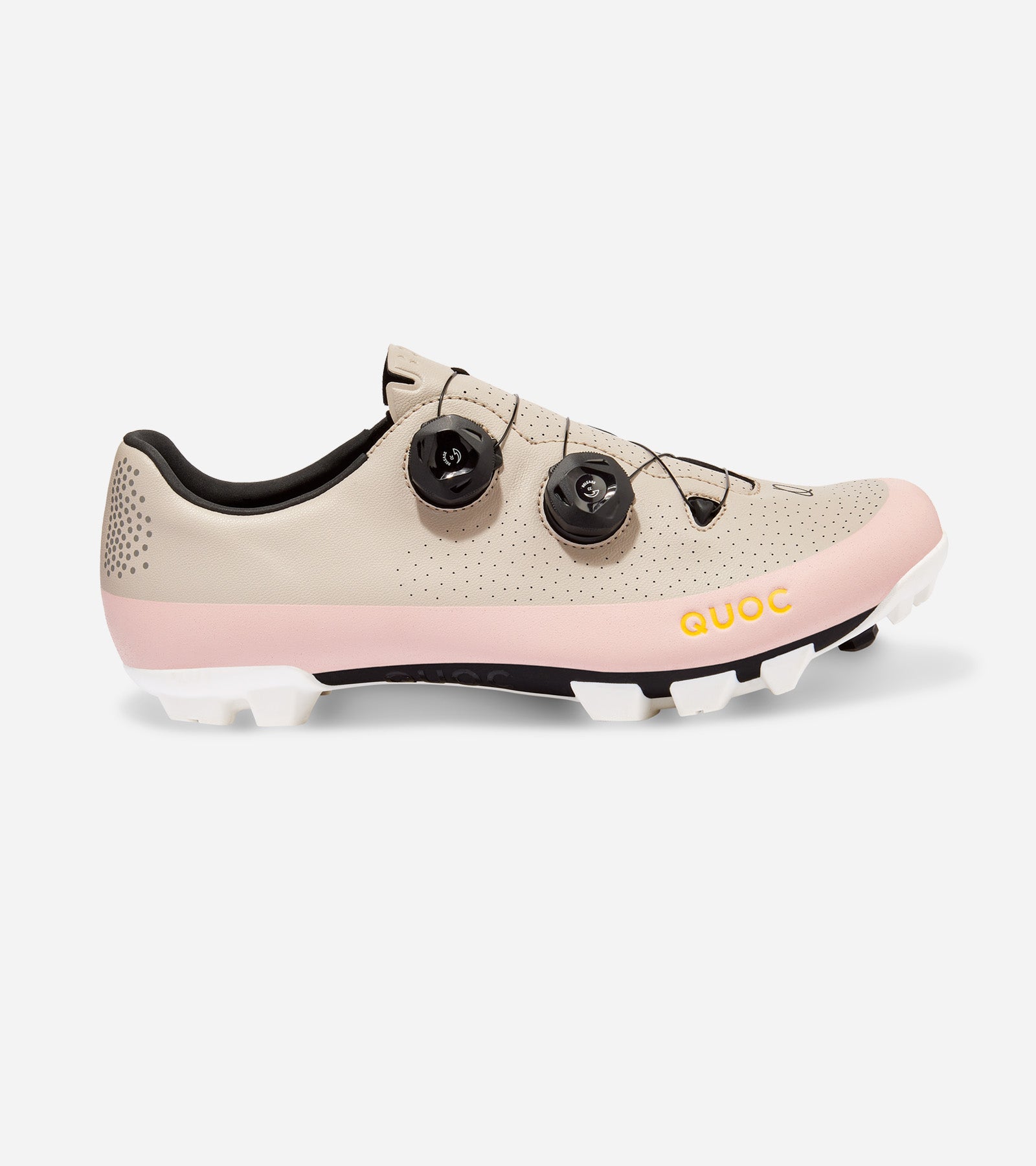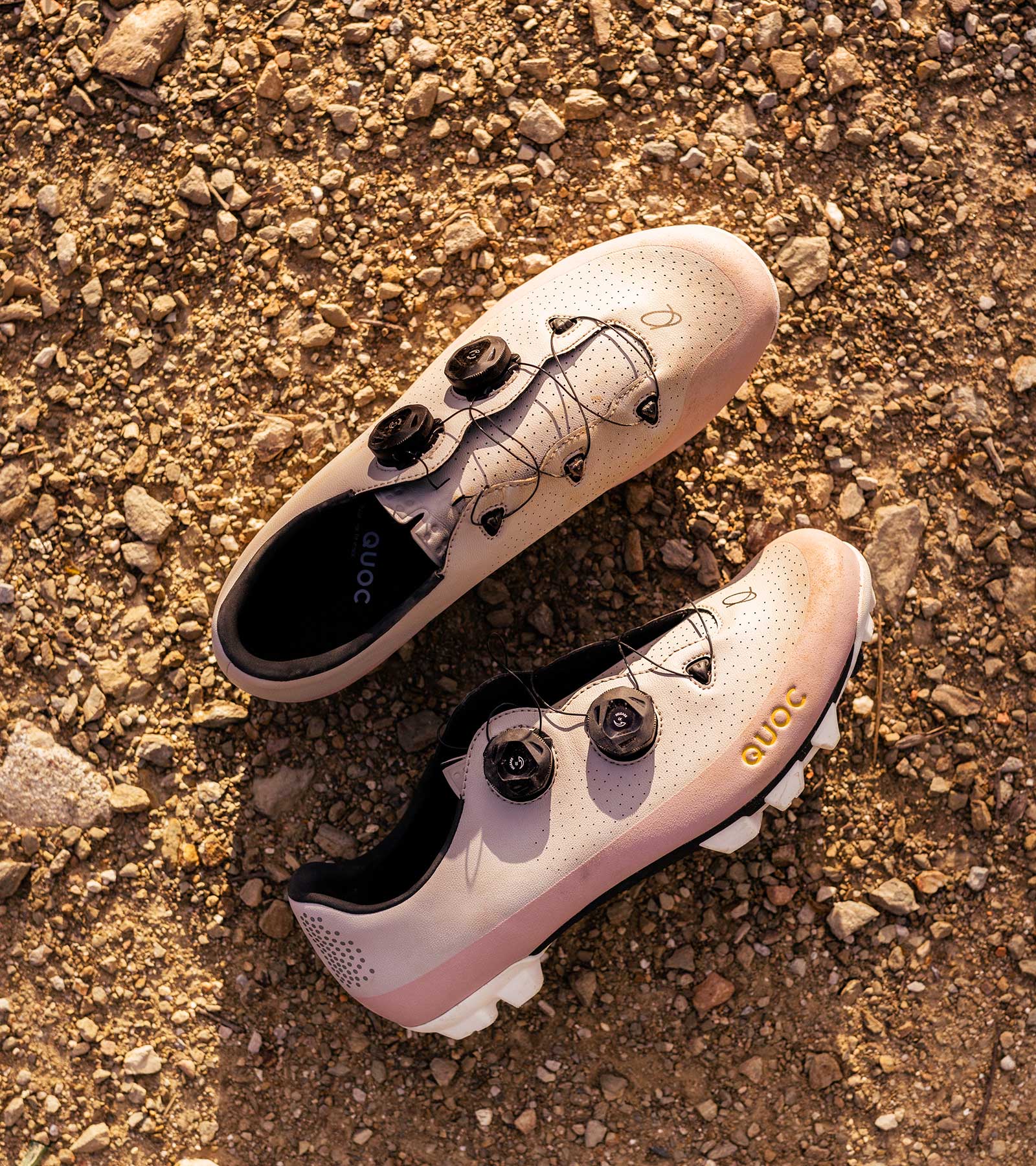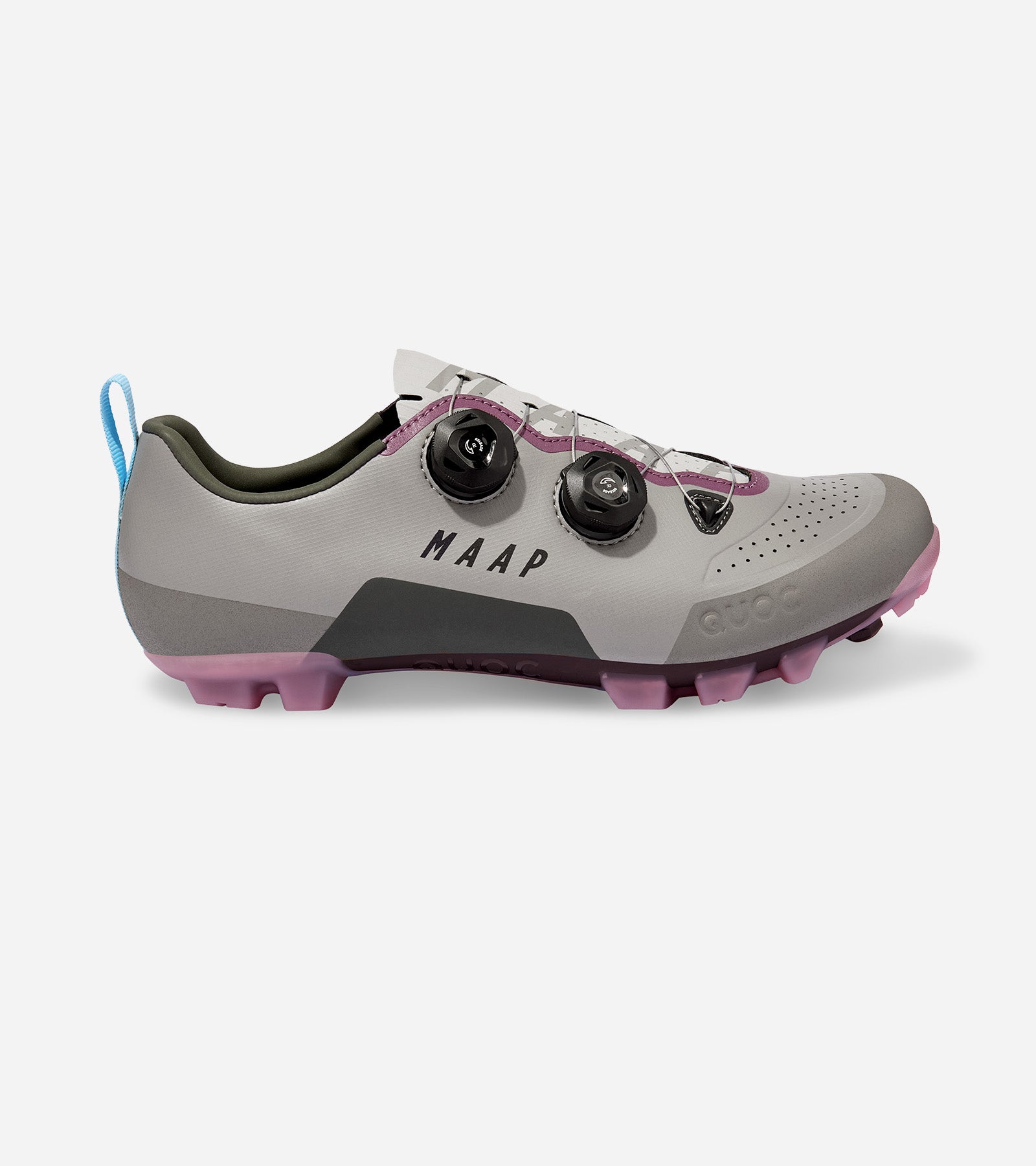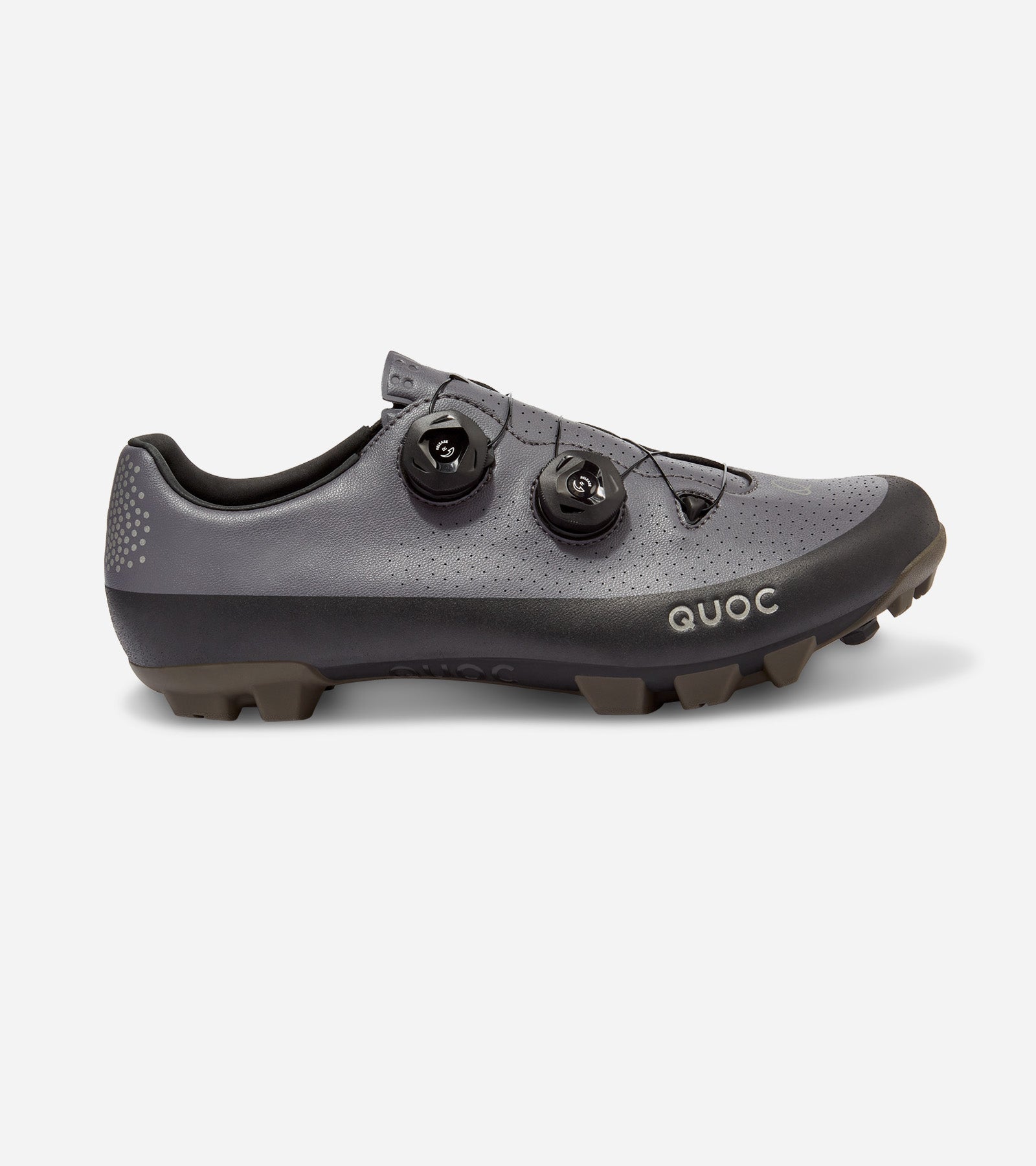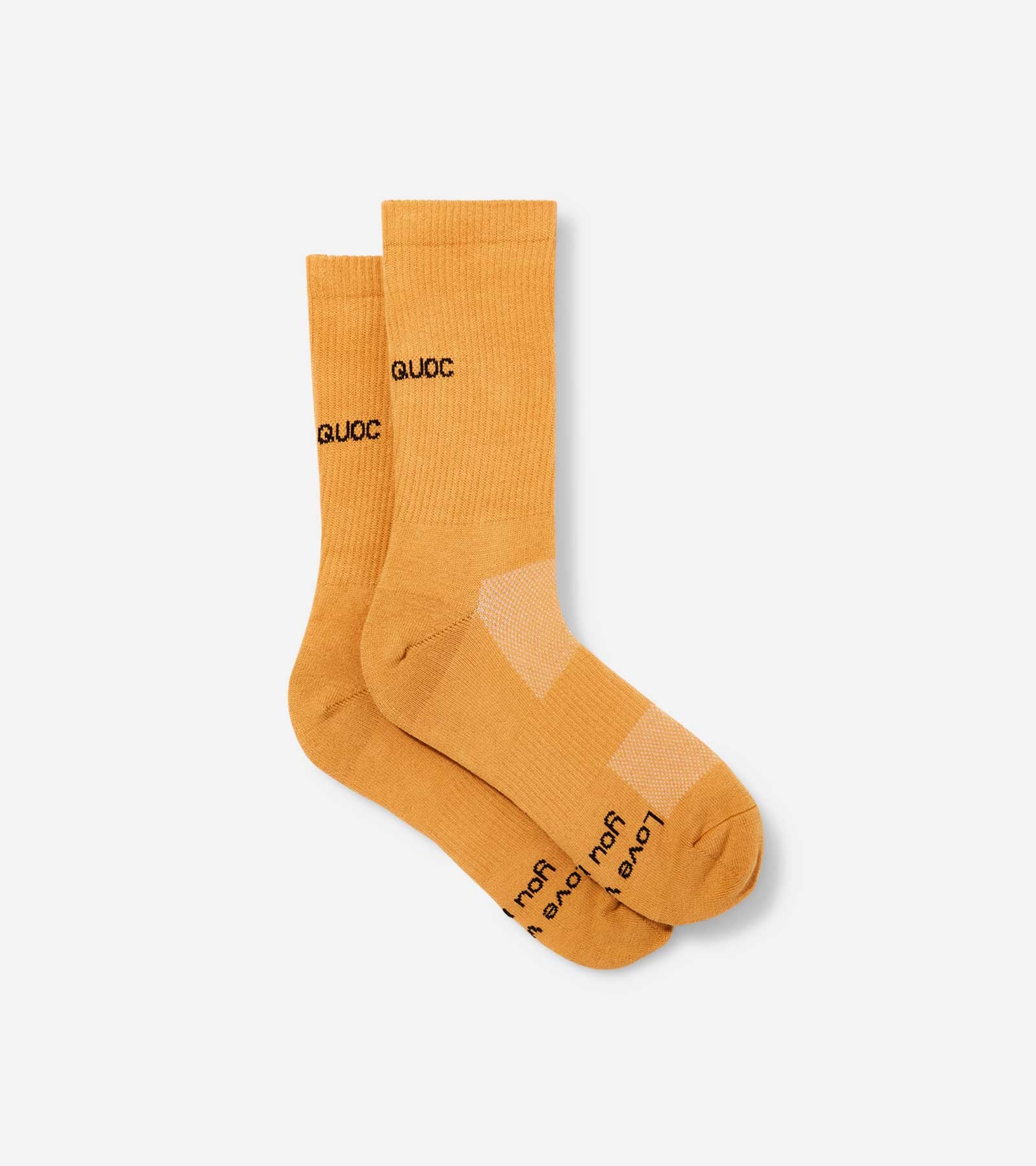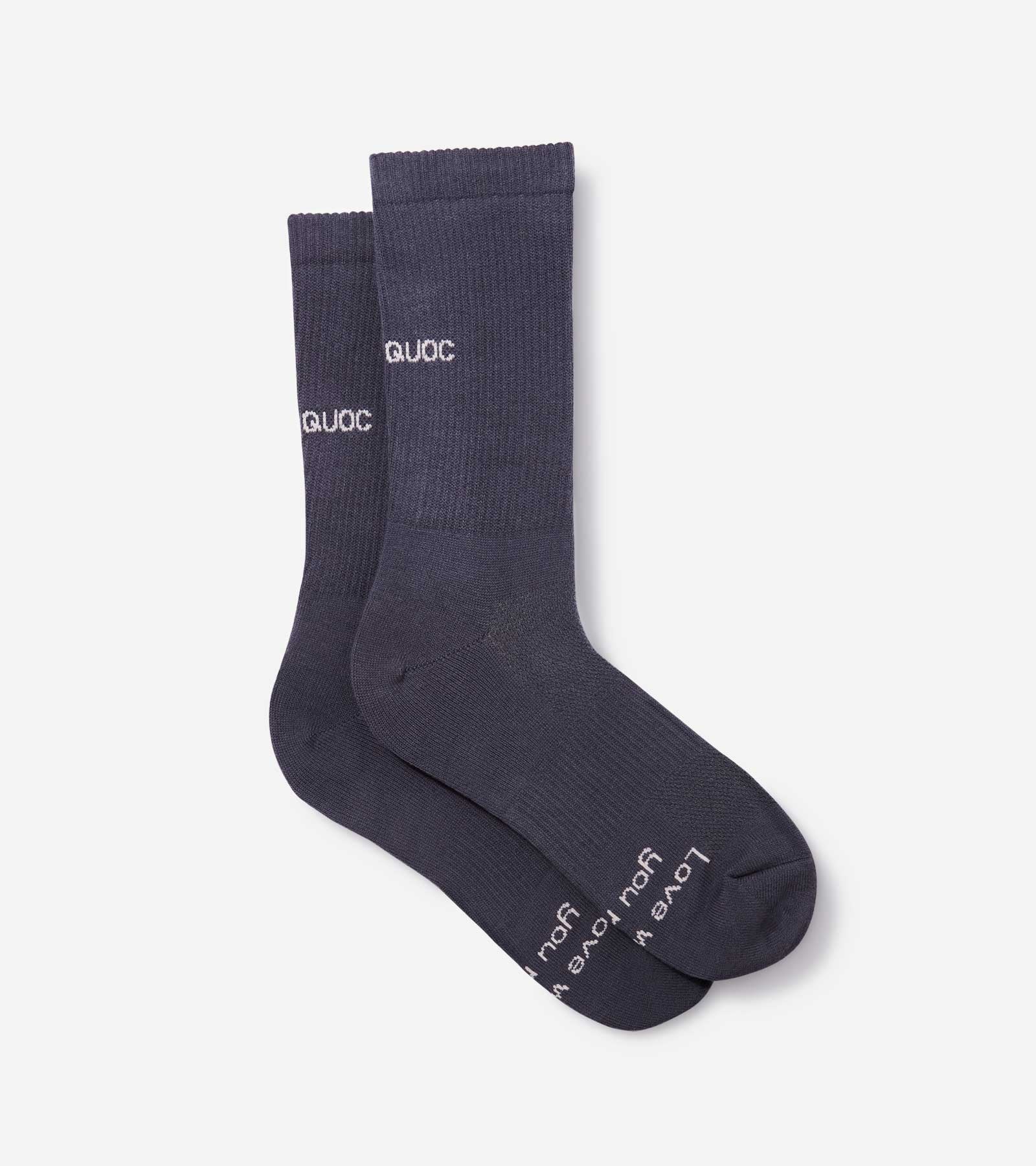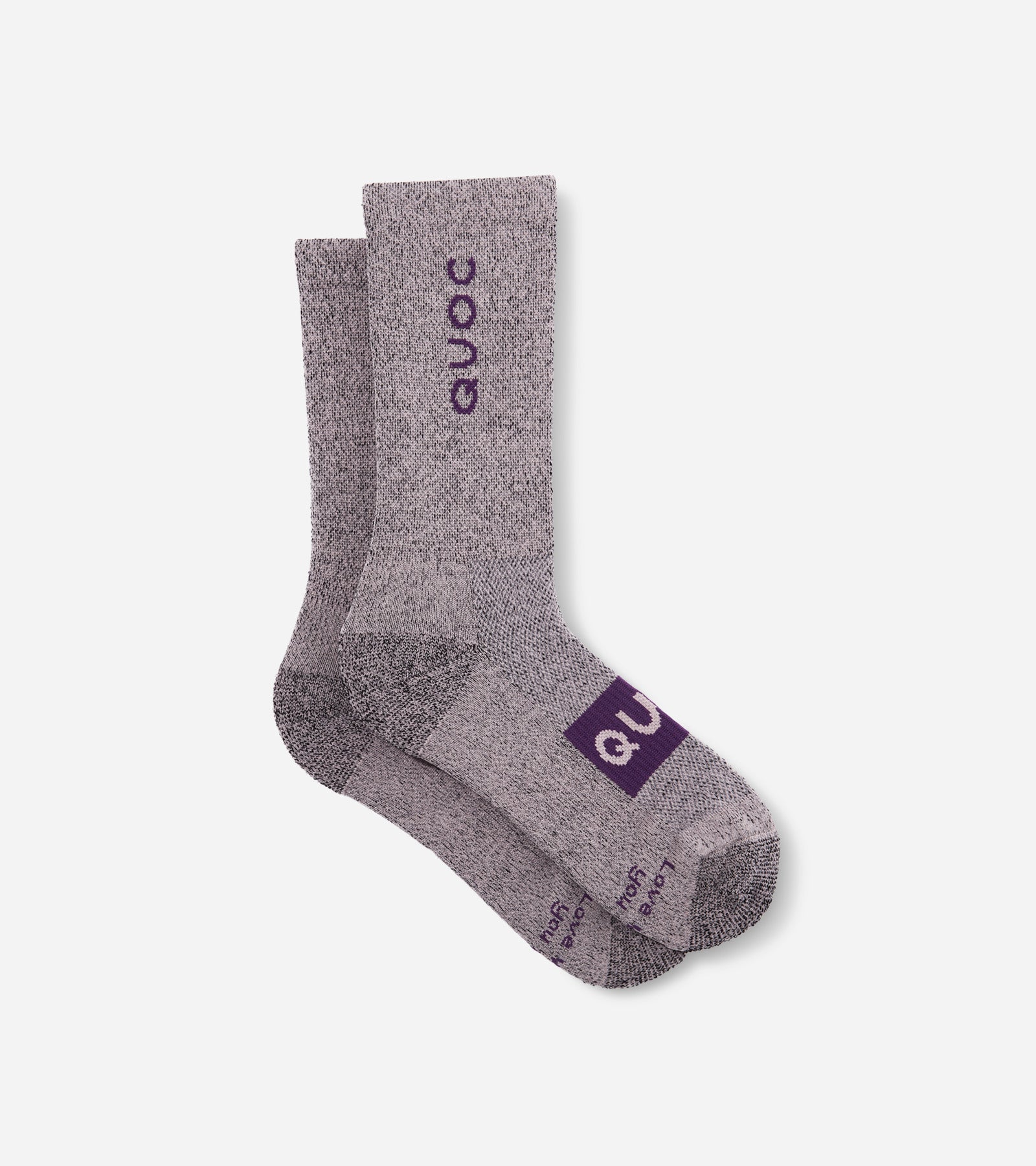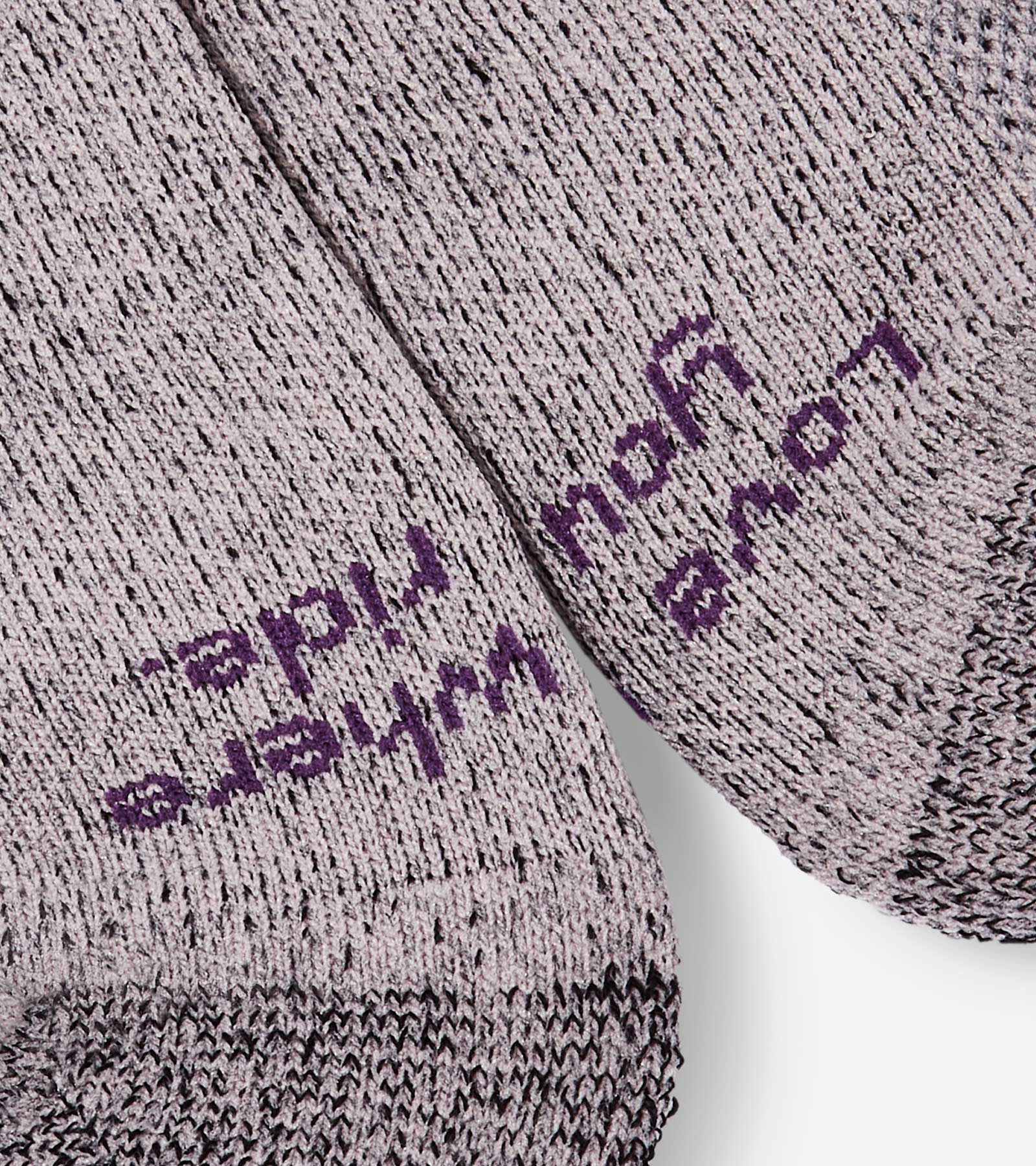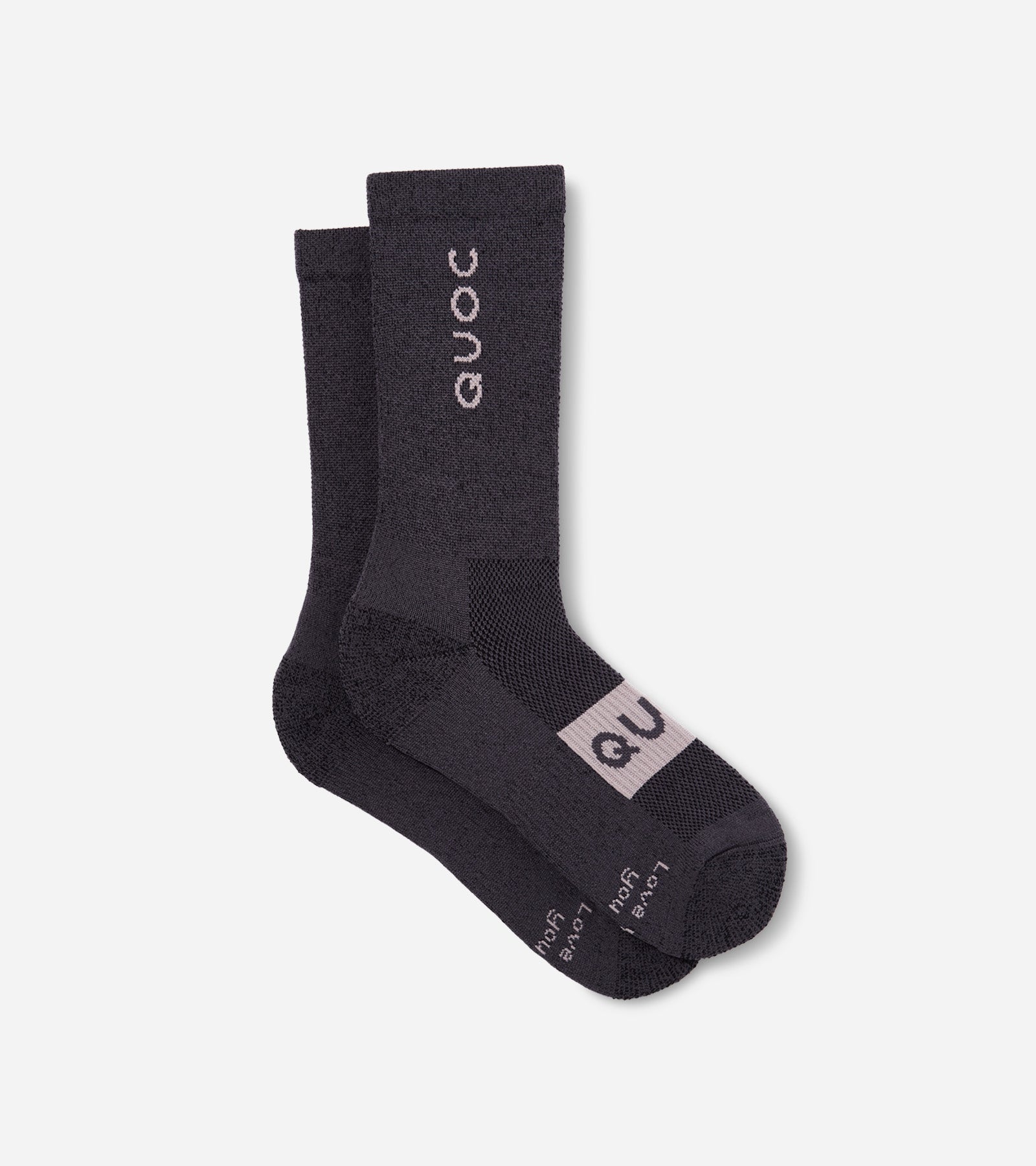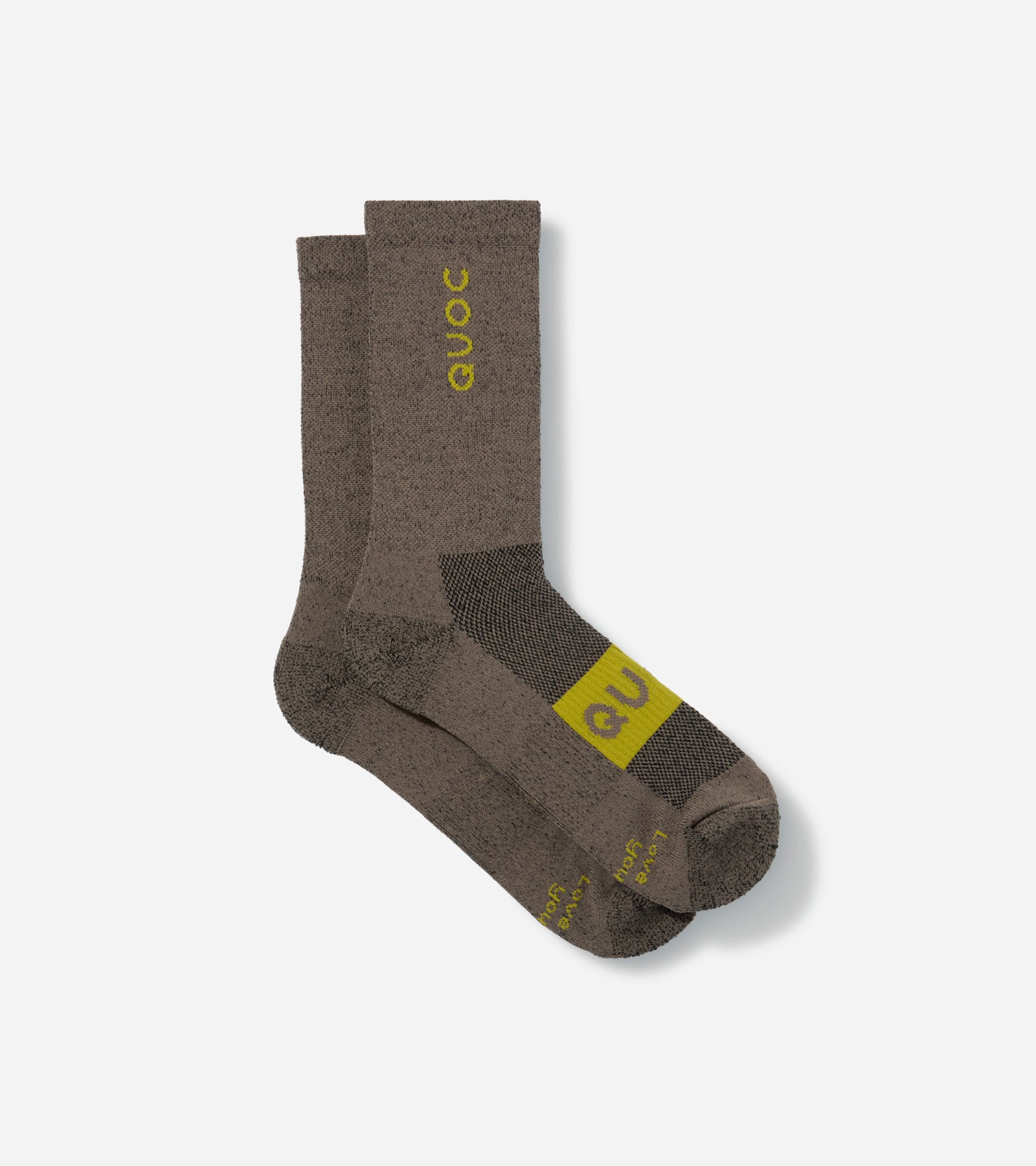Camille & Riccardo: An Ode to First Times
What happens when you trade the familiar for a landscape that feels like another planet? For Camille Gardent and Riccardo Argenta, their 800km bikepacking film, Ode to First Times, is an answer woven from countless moments of discovery. It’s a chronicle of navigating a desert of stones, pushing bikes up 40% gradients at 3,500 meters, and sharing meals with nomadic families in yurts. More than a travelogue, it’s a raw, beautiful testament to the personal transformation that occurs when you immerse yourself completely in a new culture and terrain.

The film is titled “Ode to First Times.” For each of you, what was the most significant or powerful “first” you experienced on this trip?
Riccardo: We knew going in that we were probably going to experience something completely new—new country, new culture, new history, new landscapes. But we didn’t really anticipate the extent to which Kyrgyzstan would surprise us. Every single day brought a new highlight. We were constantly moving through different landscapes, sometimes several in a single day. Each valley, creek, or mountain had its own colour and shape that felt entirely unfamiliar. Probably the most powerful moment, both spiritually and physically, was climbing Too Ashuu at 3,500 metres. The last three kilometres were brutal, but the view from the top was so unique and pure.
Camille: Let’s start with the most complex question, haha. It’s too hard for me to pick just one — I experienced so many first times during this trip. Ode to First Times is really a compilation of them all: from eating meat with my hands (I’ve been vegetarian for seven years), to getting lost in a desert of stones, experiencing altitude sickness, pushing my 30kg bike for 2 hours, not knowing where I would sleep each night, or spending hours — sometimes days — in silence and no-man’s-lands.Everything felt so new and unknown. We really went out of our comfort zone and beyond everything I thought I knew.
“Each valley, creek, or mountain had its own colour and shape that felt entirely unfamiliar.”
- Riccardo
The landscape looks epic but incredibly challenging. Was there a specific moment that truly took your breath away, for better or for worse?
The landscape felt like another planet — changing completely from one day to the next. Day 5 was the most breathtaking ride of our life: the Tuz Ashuu climb, as mentioned by Riccardo earlier. 60 km, 1,422 m of elevation gain, up to 3,400 m. I felt amazing that day, climbing strong, only hopping off when the slope hit over 18% (it even reached 40% haha). We saw just two shepherds, stunned to find us there on bikes.
Looking back and seeing how high we’d come, with snow-capped peaks behind us, it felt unreal. What I didn’t know was that the last 3 km were so steep I had to push the bike for two hours while Riccardo was having an euphoric moment, pushing super hard on the pedals. Reaching the top was pure joy, fatigue and excitement.
You mention that the local people found it bizarre to see you riding into the wilderness for fun. Can you share a memorable interaction that highlights this cultural difference and what you learned from it?
It happened quite a few times, but the most memorable was definitely when we were hosted by some locals in a very remote village. They kindly offered to cook for us, and after sharing the meal, a neighbour stopped by the house. Our presence was unexpected, and when he walked into the small home, his reaction was one of surprise and almost disbelief. I’m not sure he had seen many travellers like us sitting at his friends' dinner table. Language had been a big barrier prior to this day, but luckily the oldest daughter spoke perfect English and helped with translating (we’re still in contact, by the way—her name is Nura). Their neighbour couldn’t quite grasp why we’d chosen to embark on such a trip by bike and kept questioning our reasoning. We think it was a mix of respect toward us with a hint of “these guys are nuts.”
Riccardo, as an experienced ultra-distance rider, how was this trip different from events like the Basajaun or Traka? What shifted in your mindset when the goal changed from performance to pure discovery?
This experience was completely different from what I was used to. Ultra-distance racing, even though it’s a long effort, is relentless for the most part. There’s no time to stop; the only goal is to get from point A to B as fast as possible. Breaks are very short and usually defined by an opportunistic mindset: “Is there a chance to refuel? I stop. Otherwise, let’s keep going.” For this trip, the approach was completely different. We wanted to embrace a slower pace, take in the surroundings, and truly connect with them. At the beginning, I struggled with it; I was in a constant state of rush as if I started a new race. It took me a few days to settle into the rhythm and finally be at peace with it. Camille really helped me to put things into perspective and I’m glad she did help me to finally appreciate things around me.
“For this trip, we wanted to embrace a slower pace, take in the surroundings, and truly connect with them.”
- Riccardo
Camille, how did your background in other sports prepare you for this, and what did cycling uniquely teach you about yourself during this adventure?
My background in other sports, especially my career as a handball player, taught me resilience, how to handle physical effort and push my limits. But what cycling, and this trip in particular, taught me goes far beyond that. It took me to places in my body and mind I’d never been before — where nothing felt impossible. I just knew that, one way or another, we’d make it.
Every day was a discovery: through the landscapes, but also through the sensations. I felt strong, dizzy, altitude sick, lost, and so free. Being able to keep riding, even slowly, day after day, was incredible.
The film emphasizes breaking cultural, gender, and mental barriers. Camille, as a woman on this journey, did you feel any particular barriers or surprising moments of connection?
It’s true, as women, we can so easily have limiting beliefs about our bodies, our strength, and our capacities. I even had a farewell party in Biarritz, where we live, and I cried because I was scared I wouldn’t come back. But once there, I honestly didn’t really feel those barriers, at least not in the way I expected. In Kyrgyzstan, I was aware of being a woman traveling by bike, but most of the time, people’s reactions were full of curiosity and kindness.
Sometimes I felt looked at differently, but never in a threatening way, more like they were trying to understand what and why I was doing there. What touched me most was how connection can exist beyond words, culture, or gender: being invited to people’s place, sharing a meal or simply a smile. This journey made me realize how strong and capable we are when we step out of what we know. I truly hope that Ode to First Times can inspire and empower more women to take that first step.
What does a typical “evening routine” look like after a massive day of riding in such a remote environment?
We usually had a rough idea of where the day would end, so whenever a nice landscape or a charming village crossed our path, we’d spontaneously decide to stop there. Unpacking the bags became a well-practiced routine, then we’d set up the tent and collect water from any source we could find. Cooking dinner was something we really enjoyed doing together, using whatever was available, either dehydrated food or something we’d picked up at a local shop that day. Bedtime came quite early for the most part, usually after spending a few moments drinking tea while gazing at the beautiful Kyrgyz sky filled with stars.
What was the most memorable meal you had on the trip?
One day, in the tiny village of Jer Koch, we stopped to buy food from a small shop attached to a house and met Elnura, a 27-year-old Kyrgyz woman who spoke English very well. After asking her parents, she invited us over for dinner, and it turned out to be one of the most special evenings of the trip.
Her mother spent hours cooking an incredible rice dish topped with a beautiful, generous piece of meat. The food was delicious, but what made that night unforgettable was the connection we shared. We spent hours talking with Elnura and her family, grateful for the rare chance to speak the same language. We had dinner, dessert, and then a long tea time all together around the table, even joined by a funny neighbor, exchanging stories, and laughing about our differences.
“What touched me most was how connection can exist beyond words, culture, or gender: being invited to people’s place, sharing a meal or simply a smile.”
- Camille
Camille, you’re a poet and a craftsperson. Could you talk us through some of the poetry or creative reflections that were influenced by this trip?
As described in the movie, even if Riccardo and I were riding together every day, we spent a lot of time on our own, in our heads. It almost never happens in life to experience such silence, a kind of void, a moment when you have nothing else to do but move forward. This breach in time allowed me to think, to be in full immersion with nature and the human beings around me.
The colors, the textures, the sounds, or sometimes the absence of sound, inspired me to write poetry and thoughts. There’s also a very strong and ancient culture of wool craftsmanship in Kyrgyzstan, used both in nomadic and modern houses, a textile I also use a lot when crocheting. We even had the chance to share a beautiful moment with amazing women in Bokonbayevo, creating a traditional Shyrdak rug, which is used to insulate yurts.
If this trip was an “ode to first times,” what is the next “first” you’re each dreaming of, on or off the bike?
It’s something we haven’t quite figured out yet. There are so many beautiful places still to be discovered, and often they don’t require travelling halfway around the world. What’s certain is that we want to keep the same grounded spirit of openness and the genuine desire for new encounters.
Follow Camille & Riccardo

